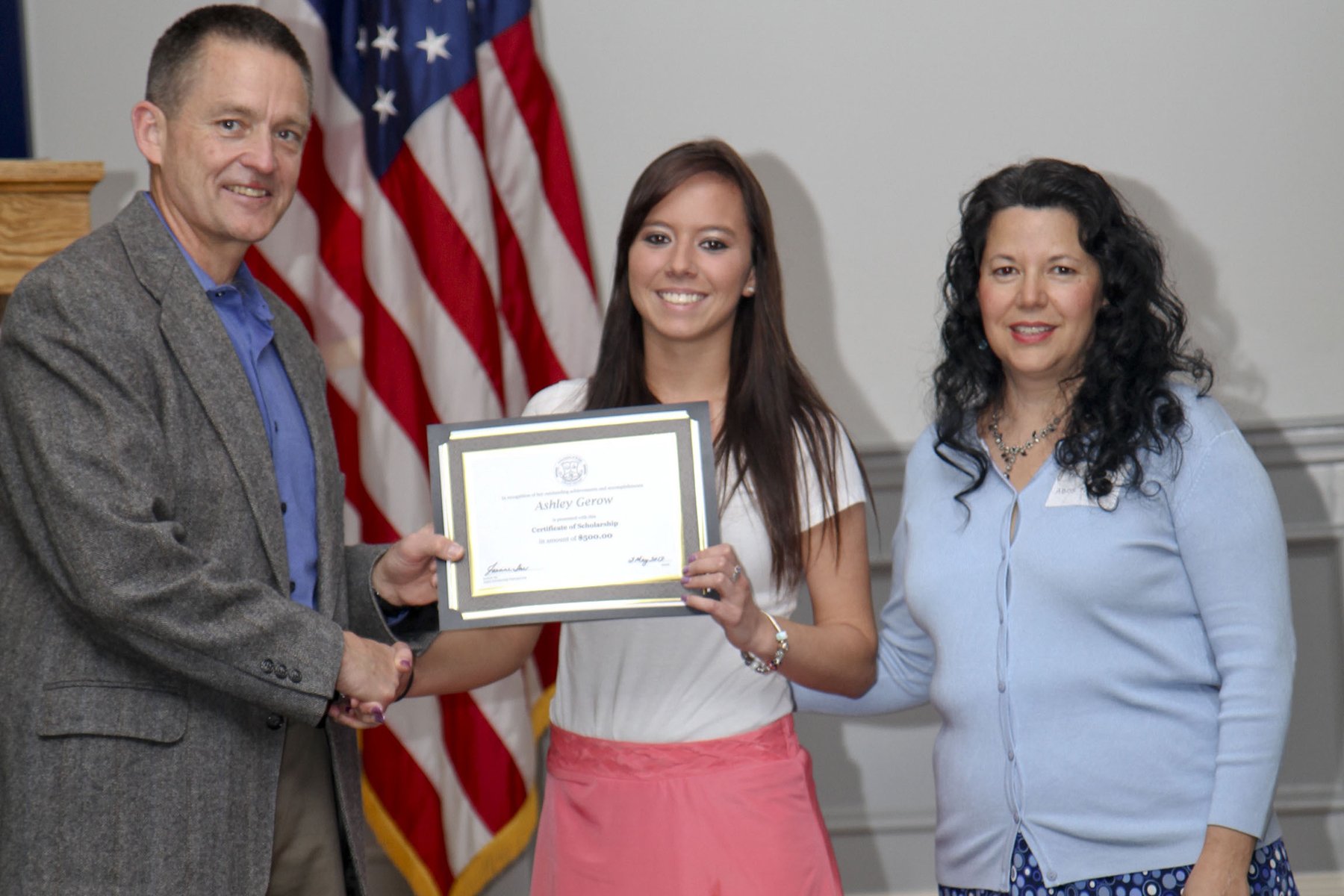10 Scholarship Tips for Student Veterans
A scholarship is presented Ashley M. Gerow at Fort Bragg, North Carolina in 2012. (Dani Salvatore/40th Public Affairs Detachment)
There are many scholarships available, and it may seem overwhelming when beginning to search for them. There are a few things to keep in mind when deciding upon scholarships, including if they will affect your GI Bill® benefits.
It is essential to realize that if you are using GI Bill benefits, you want to focus on applying for scholarships to help with the cost of living. Make sure you talk to your school's financial aid department about the particulars.
With so many scholarships available and many students seeking them out, it's wise to plan to maximize your efforts. Here are some tips to help you succeed.
Think about what makes you unique. There are scholarships available for students based on all types of things, including personal interests and extracurricular activities. Make a list of your traits so you can use them to cull the list of available scholarships. Think about these things:
Personal interests and passions
Extracurricular activities
Hardships you or your family have endured (e.g., cancer, loss of a parent, a natural disaster, etc.)
Career interests or goals
Academic accomplishments
Heritage and community
Personality traits
Next, search for scholarships based on these traits. Specialized scholarships may be harder to find, but they'll be harder for everyone else to find too. Utilize your network, social media, university contacts and scholarship databases to find as many options as possible.
Make a detailed plan. Figure out what scholarships you should apply to and start making a list of deadlines, the amount awarded and what makes you the right fit. Make a schedule to maximize your time and not miss any deadlines. Treat this like a job or a big project where you spend specific time doing specific tasks.
Keep things organized. Just like when applying for school, or your VA benefits, you'll need to provide specific information with each application. By keeping them handy and organized, you'll save time. You may not need all these things for each application, but it will pay off to have them handy.
Start with these things:
Personal information
Your school's information
Most recent transcripts (high school and/or college)
Letters of recommendation from teachers
Scholarship essays you've written in the past
Completed FAFSA and SAR report
A professional headshot type photo
You may not need all of these for every scholarship, but it's helpful to have everything in one place, ready to go.
Keep track of deadlines and responses. You don't want to rush when submitting applications, but you also don't want to miss important details or deadlines. Read the directions carefully and learn about the organizations offering the scholarships. Remember that sometimes scholarship organizations accept a certain number of applications, which makes the deadline less critical. Make and update a list of the applications that interest you, the deadlines and the response.
Follow the directions, always. Like on a job application, sometimes the instructions are used to weed through mountains of applications and sometimes serve a more specific purpose. If a 250-word essay is requested, don't make it 300+ words. Follow the directions and always do the optional work. It shows you are taking the application seriously.
Take the time to write a fantastic essay. Not all scholarship applications will require an essay, but if there is an option to write one, do it. The essay is your chance to show them who you are, to explain anything that may require additional information. Make sure you stick to the prompt, sharing a story without repeating your essay. There's no reason you have to write a brand new essay every time, as long as you proofread and edit each one to fit.
Check your social media. Make sure that your social media profiles aren't changing anyone's mind. This is especially important if the application asks for a link to your social media pages, even if it's just LinkedIn. You don't want something posted on there to give anyone any doubts.
Keep up with your spam folder. Keep tabs on the email address you use for applications and check the spam filter regularly if they end up there instead of in your inbox.
Apply again next year. Unless there's a rule that a scholarship is only available one time, you can apply the following semester or year again.
The earlier you start on scholarships, the more opportunities you will find available.
Want to provide an exceptional educational experience at your institution? Learn what military-connected students need to succeed with VVC.

